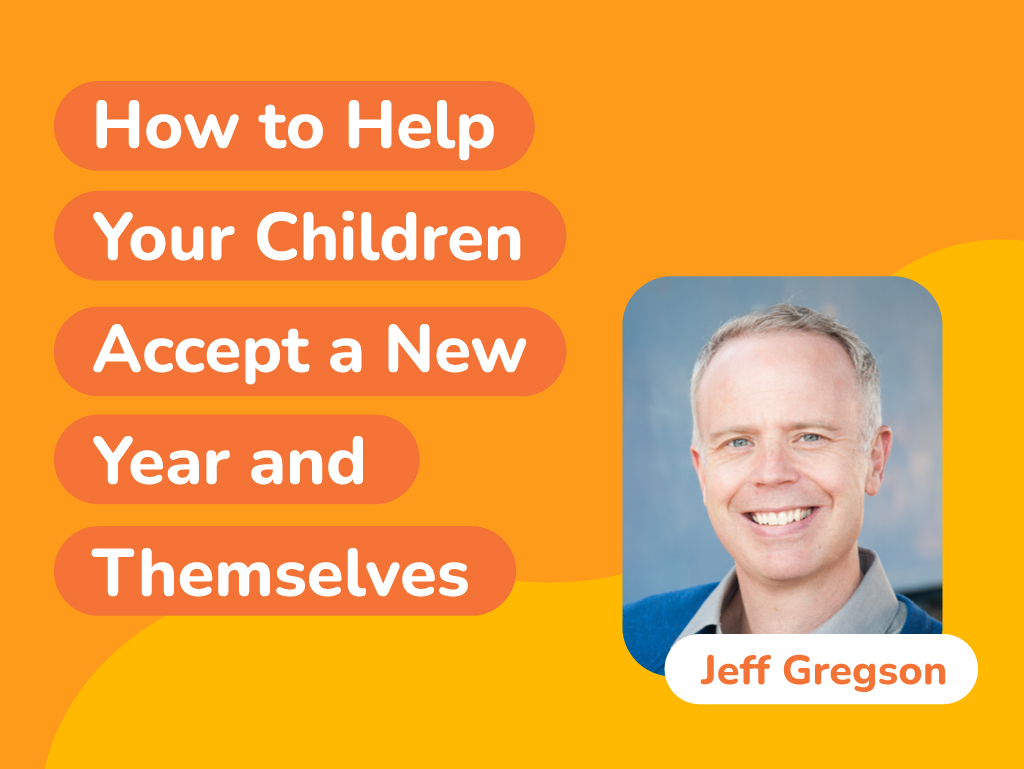
While the new year comes with new hopes, new ideas, and new dreams, it can also come with the dread of New Year’s resolutions.
We’ve come to despise New Year’s resolutions because we rarely obtain the goals we make. We can’t bear the thought of another year going by where we didn’t lose the weight, improve our eating, or get those finances in order once and for all.
So how can we convince our children that setting goals and making commitments are worthwhile, when our past experiences tell us otherwise.
The problem is not setting goals, the problem is the ideas behind the goals we set.
So let’s talk about the overall approach we are going to take this year in setting resolutions. From now on, we are going to set goals around self-acceptance, not self-improvement. If we can teach our children to work towards loving themselves, then we’re giving them a massive booster shot against depression, anxiety, and self-hate. As a counselor who specializes in the treatment of anxiety and depression in youth, I can’t tell you enough how important it is to combat perfectionism. The idea that one can find happiness, self-worth, identity, and love through achievement is what I see as the biggest cause of emotional destruction in our youth. This year we are going to make resolutions that will improve our children, and ourselves from the inside out. The best way to work on self-acceptance is to focus on our character, not our accomplishments.
Let me take you through an exercise that will help you, help your child find the type of characteristics, traits, and qualities that they would like to work on this year. I call this exercise the circle of you. Have your child write down four things that they feel describe who they are such as activities they like to do, or interests they excel at, or even things that are important to them. Have them write these four titles at the top of a piece of paper. Examples of these can be things such as enjoys baseball, excels at dance, or thrives with friends and family.
Now, have your child write below each title; characteristics, traits, qualities, or attributes that make them enjoy or excel at these activities and interests. You may help your child come up with descriptions such as patience, determined, kindness, team work, selflessness, creative, flexible, consistent, teachable, loving, and so on.
After they have come up with their list of amazing traits, have them circle each one. Tell them that the titles above these traits are great interests and activities, but we can’t define ourselves nor judge ourselves on these categories. It is important to recognize that being on the swim team is wonderful because it helps us develop our character. What is the most powerful lesson with the circle of you exercise is giving your child the understanding that even when they fail at a dance competition, or debate tournament, they have just developed even more character. This is the best way to teach our children that their self-worth cannot be based on achievement, but rather effort.
Now that we’ve talked about what type of goals to set, let’s discuss how to set them. Have your child pick four traits that they would like to focus on for the year. Identify the title above the trait as the opportunity to work on the goal. For example, if the interest of playing guitar is on their circle you exercise, and they would like to work on the trait of persistence, they would find a way to measure being persistent. They could track every time they didn’t feel like practicing, but did. You could also create a point system where they earn points even time they make a mistake, but didn’t give up. Their goal would be to simply increase the number of points they earn each month and recognize how it’s developing their character. This recognition could come from a conversation with you.
I can tell you that helping your children focus on who they are, not what they do will be one of the best ways to teach your children happiness. I also understand that for many of you reading this, you may struggle with the same over-achieving complex. Let’s make it our goal as parents to set an example to our children and show ourselves more love and acceptance this year. Happy New You Year!
